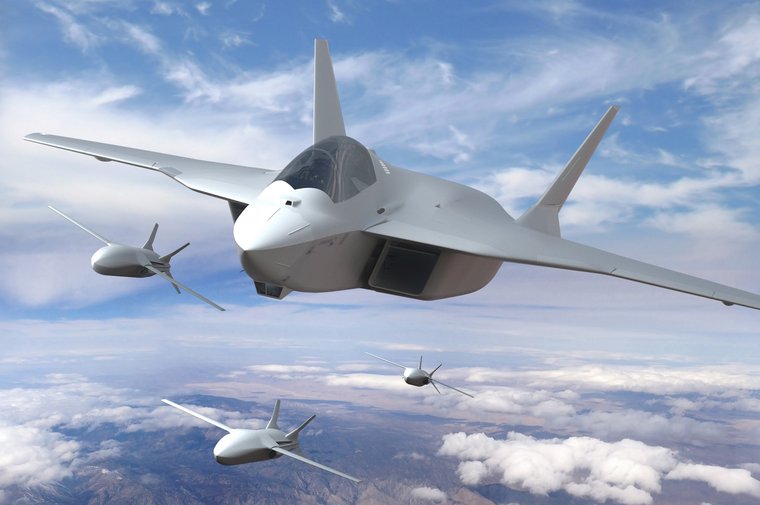
Germany’s Federal Office of Bundeswehr Equipment, Information Technology and In-Service Support (BAAINBw) has selected the HIS consortium of Helsing, Schönhofer Sales and Engineering (SSE) (a Rohde & Schwarz subsidiary) and IBM Deutschland to provide the AI infrastructure for FCAS.
BAAINBw signed a contract for provision of this software platform on 7 August with immediate effect.
National initiatives in Germany are running in parallel to the wider Franco-German-Spanish FCAS programme. The HIS consortium’s contract will run as part of the Next Generation Weapon System National Research and Technology project.
Related Articles
NGWS/FCAS sensor design effort receives green light
German industry teams up to develop sensors for FCAS fighter
Shield AI successfully demonstrates autonomous teaming with V-BAT UAS
To allow this key AI capability to be developed and deployed quickly, Germany has createed a cross-functional platform as a development environment for all partners and pillars of FCAS.
‘AI plays a key role in conflicts with peer competitor adversaries,’ said Stephanie Lingemann, programme director at Helsing. ‘The AI backbone is the first step toward giving the air force cross-functional capabilities with AI; the FCAS programme is making progress, but this sort of infrastructure is crucial for every platform.’
Sandra Pfetzing-Huber, associate partner at IBM Consulting, added: ‘In order to develop and operate AI applications, a powerful and scalable IT infrastructure is required that is also secure. The Secure Cloud (VS-Cloud) from IBM and its partners Secunet and RedHat offers the scalability, flexibility, reliability and security to quickly and easily develop, operate and secure AI applications.’
The HIS AI backbone will allow high-performance AI to be developed for military applications, including complex industry collaboration, and deployment to the German armed forces.
An FCAS aircraft mock-up was unveiled at the Paris Air Show in June 2019. France and Germany are planning to spend an initial €4 billion ($4.5 billion) in the development phase by 2025, with half the total amount expected to be spent by Berlin. FCAS is due to be operational by 2040.



